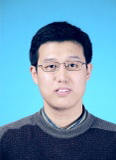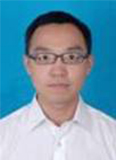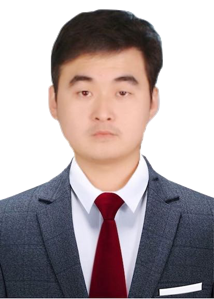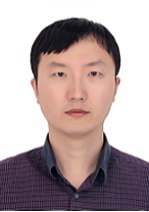

Prof. Zhiyong Luo
Sun Yat-sen University, China
Zhiyong Luo is a professor and doctoral supervisor of Sun Yat-sen University, a candidate of "One Hundred Talents Plan" talent, and engaged researcher of Pengcheng National Laboratory. His research interests include satellite Internet, B5G/6G communications, intelligent computing, and artificial intelligence applications. He serves as the general expert of the Key Research and development program of The Ministry of Science and Technology "Broadband Communication and New Network" and the general expert of the key field program of Guangdong Province "New Generation Communication and Network". He participated in 99X/81X/93X and other key plans and was responsible for more than ten models and pre-research projects and general technology. He is in charge of the 863 program of the Ministry of Science and Technology for the development of professional digital communication network chips, the Ministry of Science and Technology of the State software radio science and technology. Based on these projects, he published dozens of papers in IEEE top journals, conferences, and other publications indexed by SCI and Ei.
Title:6G Satellite-ground Massive MIMO Communication: Key Technologies and Development Prospect
Abstract: 6G will fully supports the space-air-ground integrated network. Satellite-Ground Integrated Communication needs to develop new multi-beam phased array to combat the fading characteristics of satellite communication, improve capacity and rate of transmission. Satellite Multi-antenna System is the trend of the LEO phased antenna. We will discuss the LEO-MIMO Beamforming and MIMO-OTFS which are key technologies of the space-air-ground integrated network. The Antenna Architecture, frequency reusing, capacity performance, propagation characteristics of phased arrays will be discussed as well as the multibeam design and application. And then, the basic multi domain transform is deduced to the disign of the OTFS waveform. We focus on the OTFS Signal Transmission Performance in Satellite-Ground Scenarios, as well as the Satellite MIMO-OTFS Channel Equalization and Detection Technology. A low complexity channel equalization algorithm is designed for the ZP-OTFS system. The simulation results testify the better performance of the Channel Equalization and Detection scheme of the MIMO-OTFS system.

Prof. Xuan Guang
Nankai University, China
Dr. Guangxuan, professor of the School of Mathematical Sciences, Nankai University, has been selected as one of the national "Four Youth" Talents Project and the Training Program of One Hundred Young Discipline Leaders of Nankai University. In 2012, he graduated from Chenshen Institute of Mathematics, Nankai University and received his doctorate degree. From January 2011 to August 2012, he was engaged in joint doctoral training at University of Southern California (funded by China Scholarship Council and Natural Science Foundation of the United States). From November 2015 to November 2018, he worked as a researcher at the Institute of Network Coding of the Chinese University of Hong Kong (Hong Kong Scholar). His research interests include information theory, coding theory and cryptography. His current research interest is information theory oriented to function computation. In recent years, he has completed a monograph Linear Network Error Correction Coding, published by Springer Publishing House in Germany. He has published more than 40 academic papers, 7 of which have been published in IEEE Trans.Inf. Theory, an authoritative journal on information theory. He has published 7 papers in authoritative journals or conferences in the field of communication and information Security (such as IEEE J. Sel. Areas Commun., IEEE Trans. Commun., USENIX Security, etc.). The research results have won the best paper award at many domestic and foreign conferences. "Young Scholar Award" of Tianjin Mathematics and Statistics Joint Academic Conference in 2021; In 2018, he won the "Young Star Award of Information Theory" of Chinese Society of Electronics. Selected as the second-tier candidate of Tianjin "131 Innovative Talents Program"; In 2016, he was selected into the "Xiangjiang Scholars Program"; In 2014, he was selected into the high-level Talents Program of "Three Year Thousand Talents" in Tianjin.
Title:Secure Network Function Computation for Linear Functions: Source Security
Abstract:We put forward (information-theoretically) secure network function computation. In the model, a target function, of which the inputs are generated at multiple source nodes, is required to be computed with zero error at a sink node over a network while being protected from a wiretapper who can access any one but not more than one wiretap set in a given collection of wiretap sets. From the information theoretic point of view, we are interested in characterizing the secure computing capacity, which is defined as the maximum average number of times the target function can be securely computed with zero error for one use of the network. The characterization of this secure capacity with this general setup is overwhelmingly difficult. In this talk, we focus on the secure model for linear functions with the wiretapper being able to eavesdrop any subset of edges in the network up to a certain size, referred to as the security level.

Dr. Zhiheng Zhou
University of Electronic Science and Technology of China, China
He graduated from University of Electronic Science and Technology of China (UESTC) in 2014, majoring in Communication and Information System. From 2015 to 2017, he worked as a postdoctoral fellow at the Chinese University of Hong Kong. As a reviewer for IEEE Transactions on Vehicular Technology, IEEE ICC and other journal conferences. He has been the principal researcher of national major projects, Cisco, Huawei and other scientific research projects, and has obtained 2 patents. He has published 10 academic papers in core academic journals at home and abroad, 4 of which were indexed by SCI. Research interests: Intelligent network communication, trusted communication in the Internet of Things, abnormal network behavior detection, network error correction coding, etc.
Title:Linear Consensus Algorithm in Wireless Networks
Abstract:In the Internet of Things (IoT), there is the requirement of calculating the average of a set of measurements gathered at nodes without a central node. The linear consensus algorithm is a well-known technique allowing nodes calculate the average locally. In wireless networks, however, the consensus cannot be ensured due to communication errors. Thus, we are concerned with the probability, called convergence probability, that nodes achieve consensus in error-prone environments. Consequently, a lower bound on the convergence probability of the linear consensus algorithm is derived. Besides the expectation used by conventional methods to estimate the convergence probability, the second moment of the consensus measure is taken into account for estimating the lower bound. Then, the Chebyshev inequality is adapted to improve the lower bound of the convergence probability. Next, a new linear consensus algorithm is designed aiming in faster convergence. To this end, each node is requested to complete each iteration by using the last received information even if it is old. It is proved that this method can achieve a higher convergence probability given the number of iterations.

Dr. Congduan Li
Sun Yat-sen University, China
Congduan Li (Senior Member, IEEE) received the B.S. degree from the University of Science and Technology Beijing, China, in 2008, the M.S. degree from Northern Arizona University, AZ, USA, in 2011, and the Ph.D. degree from Drexel University, PA, USA, in 2015, respectively, all in Electrical Engineering. From October 2015 to August 2018, he was a Post-Doctoral Research Fellow with the Institute of Network Coding, The Chinese University of Hong Kong and with the Department of Computer Science, City University of Hong Kong. He is currently an Associate Professor with the School of Electronics and Communication Engineering, Sun Yat-sen University, China. His research interests lie in the broad areas related with networks, such as coding, security, wireless, storage, and caching.

Dr. Xiangping Zhai
Nanjing University of Aeronautics and Astronautics, China
Xiangping Bryce Zhai is an Associate Professor of the College of Computer Science and Technology, Nanjing University of Aeronautics and Astronautics, P. R. China. He was a Post-Doctoral Fellow with the City University of Hong Kong. He received the Bachelor degree in Engineering from Shandong University in 2006 and the Ph.D. degree from City University of Hong Kong in 2013. Previously, he was a software engineer in NEC China Co.,Ltd. from 2006 to 2009 and a senior software engineer in Thunder Software Technology Co., Ltd. from 2009 to 2010.
Research Interests:Internet of Things, mobile networks, edge computing, resource optimization, and spatial analytics.
Title:Opportunities and Challenges of Smart Cooperation in Internet of Flying Things
Abstract:Unmanned Aerial Vehicles is a new member of the Internet of Things. Its high dynamic characteristic brings new challenges to the impact of traditional wireless networks. Most UAVs with multi-rotors have very limited resources. Therefore, it is necessary to study how to complete the task effectively and intelligently. In addition, UAVs also need the smart cooperation via Internet. There are many shortcomings of existing research, such as the complexity of trajectory optimization under resource constraints, the difficulty of optimal deployment and energy efficiency optimization of UAVs under large-scale service requests, and the difficulty of multi-dimensional resource collaborative management in dynamic environments. Therefore, it provides enormous opportunities to study key technologies for realizing more intelligent, efficient and reliable services in Internet of Flying Things.